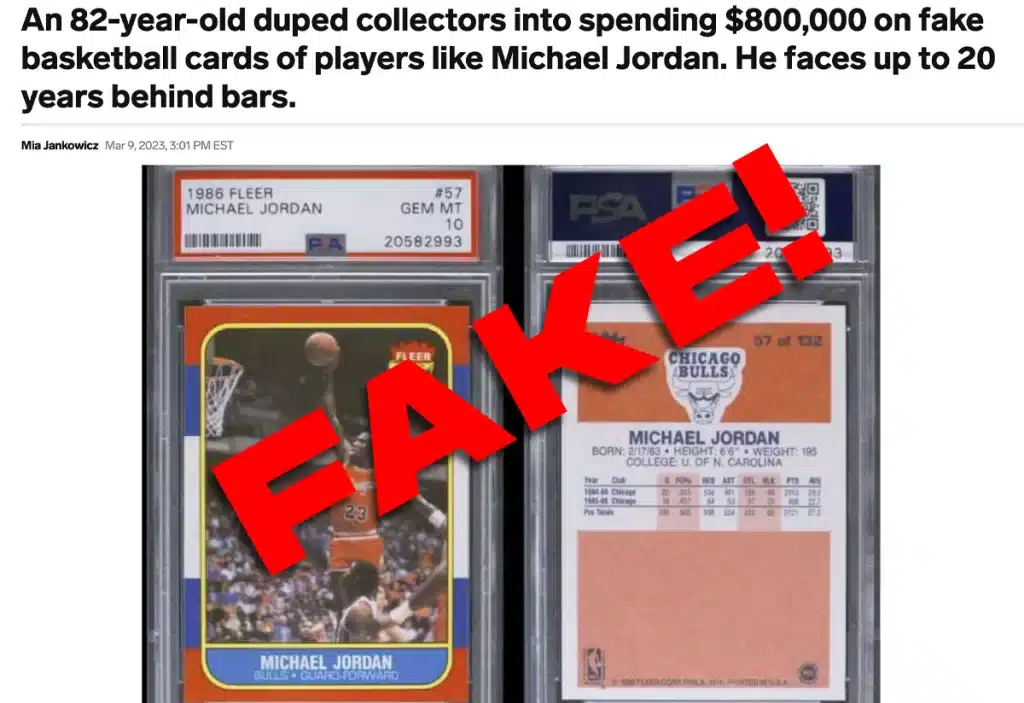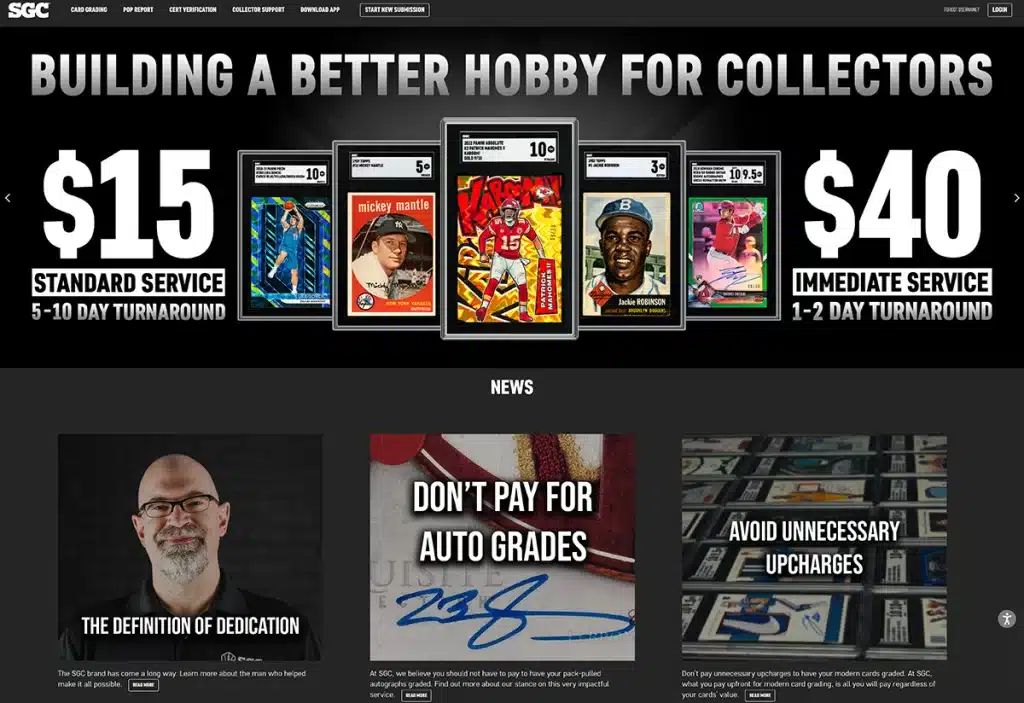How to Avoid Falling Prey to Counterfeit Card Scams: Lessons from the $800,000 Michael Jordan Rookie Card Fraud
By Matt, Graded Card Investor
In the world of sports card collecting, a recent scandal has sent shockwaves through our community. An 82-year-old man, Mayo Gilbert McNeil, orchestrated a fraud involving counterfeit Michael Jordan rookie cards, duping collectors out of more than $800,000.
This cautionary tale not only underscores the importance of vigilance but also offers valuable lessons for all collectors, both seasoned and new. Here’s what every collector needs to know:
1. Understand the Mechanics of the Scam
McNeil’s operation was sophisticated: he placed fake Jordan rookie cards in plastic cases with counterfeit PSA 10 labels, deceiving buyers into believing they were purchasing highly graded, authentic cards. His scheme, running from 2015 to 2019, involved fake identities and multiple email accounts to cover his tracks.
2. Beware of Too-Good-to-Be-True Deals
One major red flag in McNeil’s scam was the price. A PSA 10 Michael Jordan rookie card for $4,500 is far below the market rate. When a deal seems too good to be true, it often is. It’s crucial to know the market value of cards and be skeptical of prices that are significantly lower than expected.
3. Stay on Secure Platforms
McNeil conducted transactions outside of official auction sites like eBay, circumventing their safeguards. It’s a common tactic used by scammers to avoid detection and leave buyers without recourse. Always insist on conducting transactions within the security of established platforms, which offer protection and a paper trail.
4. Do Your Due Diligence
Before making a purchase, especially of a high-value card, thorough research is essential. Check the card’s history, verify the seller’s credibility, and consult with fellow collectors. In the digital age, it’s easier than ever to research and verify information.
5. Educate Yourself on Authentication
Understanding how to identify a genuine PSA label and card is vital. In this case, the counterfeit items had discrepancies that, upon closer inspection, would have been evident. Familiarize yourself with the security features of legitimate grading companies and don’t hesitate to ask for additional verification or second opinions. Use PSA’s Certification Check to verify authentic labels.
Conclusion
This unfortunate incident in our community is a stark reminder of the importance of vigilance in card collecting. By staying informed, skeptical of unrealistic deals, and diligent in our transactions, we can better protect ourselves and our investments. Remember, in the world of collectibles, knowledge is not just power – it’s your best line of defense against fraud.
Stay safe, and keep collecting!
Matt, Graded Card Investor
From a young age, Matt dove deep into sports card valuation, turning to esteemed price guides like Beckett and Tuff Stuff. Eventually he extended to Pokémon, Magic: The Gathering, and Yu-Gi-Oh!. With a vision to sustain and nurture the hobby he loved, Matt established the ‘Graded Card Investor’ YouTube channel and website. He aims to foster a healthy community and offer invaluable insights to those entering the world of sports cards and TCGs. His depth of understanding, from the card market’s 2020 pinnacle to its 1990s valleys, is consistently fortified by meticulous research.


